
Fulbourn Fen is a 27.3-hectare (67-acre) biological Site of Special Scientific Interest east of Fulbourn, Cambridgeshire. It is privately owned and managed by the Wildlife Trust for Bedfordshire, Cambridgeshire and Northamptonshire.

Southorpe Meadow is a 2 hectares biological Site of Special Scientific Interest in Southorpe in Cambridgeshire. It is managed by the Wildlife Trust for Bedfordshire, Cambridgeshire and Northamptonshire.
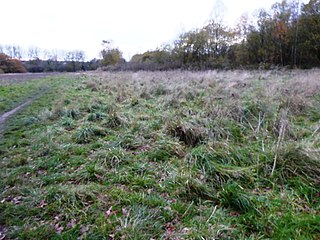
Coalville Meadows is a 6.0 hectares biological Site of Special Scientific Interest between Whitwick and Coalville in Leicestershire. It is managed by the Friends of Holly Hayes Wood.

Kings Wood and Glebe Meadows is a 36.1 hectare Site of Special Scientific Interest in Houghton Conquest in Bedfordshire. A local teenage boy, Peter Sollars, discovered many rich communities of plants there, including a number of rare species, e.g. Butcher's Broom, Small Teasel and Green Hellebore in the wood, and combinations of Lady's Bedstraw, Spiny Restharrow, Great Burnet, Adders Tongue Fern and Cowslips in the meadows. The County Botanist at the time, John Dony, was notified of his findings, which were confirmed by a site visit with Peter. The site was notified in 1984 under the Wildlife and Countryside Act 1981, and the planning authority is Central Bedfordshire. It is also a Local Nature Reserve.

Oxley Mead is a 3.7 hectares biological Site of Special Scientific Interest in the Oxley Park district of Shenley Church End in Milton Keynes, (ceremonial) Buckinghamshire.
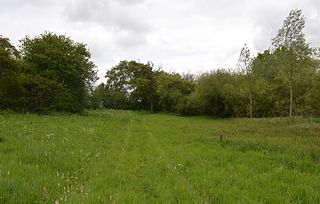
Ashdon Meadows is a 1.5-hectare (3.7-acre) biological Site of Special Scientific Interest south of Ashdon in Essex.

Portholme is a 106-hectare (260-acre) biological Site of Special Scientific Interest between Huntingdon and Godmanchester in Cambridgeshire, England. It is a Nature Conservation Review site, and a Special Area of Conservation.
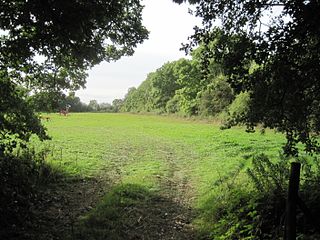
Caldecote Meadows is a 9.1-hectare (22-acre) biological Site of Special Scientific Interest in Caldecote in Cambridgeshire.
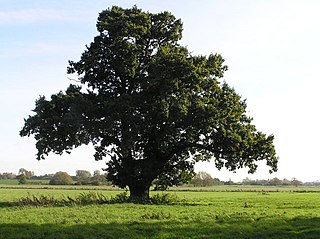
Mill Crook is a 5.9-hectare (15-acre) biological Site of Special Scientific Interest east of Towcester in Northamptonshire. Mill Crook and Grafton Regis Meadow are a 7.9-hectare (20-acre) nature reserve managed by the Wildlife Trust for Bedfordshire, Cambridgeshire and Northamptonshire.

Alder Wood and Meadow is a 13.2-hectare (33-acre) biological Site of Special Scientific Interest south-west of Corby in Northamptonshire.

Titchmarsh Meadow is a 2.2-hectare (5.4-acre) biological Site of Special Scientific Interest north-east of Titchmarsh in Northamptonshire.

Bosworth Mill Meadow is a 5.7-hectare (14-acre) biological Site of Special Scientific Interest north-west of Welford in Northamptonshire.

Calender Meadows is a 3.1-hectare (7.7-acre) biological Site of Special Scientific Interest north of Guilsborough in Northamptonshire.
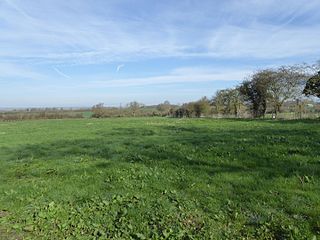
Bozeat Meadow is a 2.6 hectare biological Site of Special Scientific Interest in Bozeat, east of Northampton.

Wollaston Meadows is a 14.3-hectare (35-acre) biological Site of Special Scientific Interest south of Wellingborough in Northamptonshire.

Hardwick Lodge Meadow is a 10 hectare biological Site of Special Scientific Interest north-west of Wellingborough in Northamptonshire.

Wilde Street Meadow is an 11.6-hectare (29-acre) biological Site of Special Scientific Interest between Lakenheath and Mildenhall in Suffolk, England.
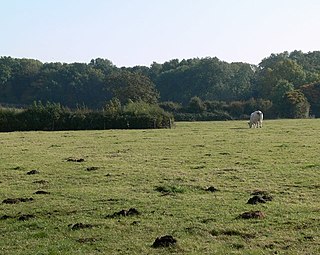
Debdale Meadow, Muston is a 4.3-hectare (11-acre) biological Site of Special Scientific Interest north of Muston in Leicestershire.


















